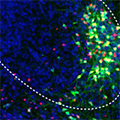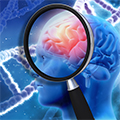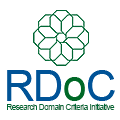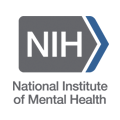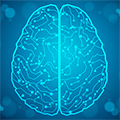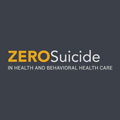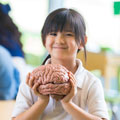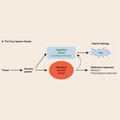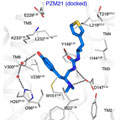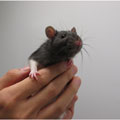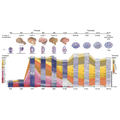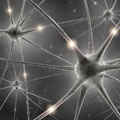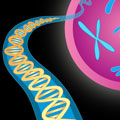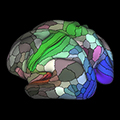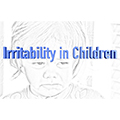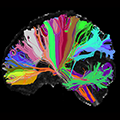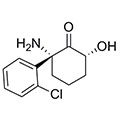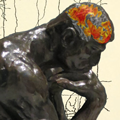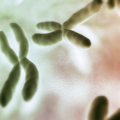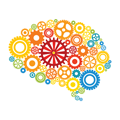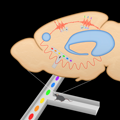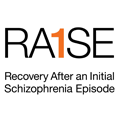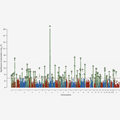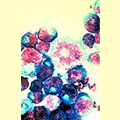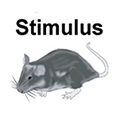Science Updates from 2016
- Adding Better Mental Health Care to Primary Care
-
Medicare’s new policy supports Collaborative Care and could improve the lives of millions of people with behavioral health conditions.
- NIMH Training Grant Recipient Wins Research Prize
-
NIMH training grant recipient Neir Eshel was named the 2016 Grand Prize winner of the Science & SciLifeLab Prize for Young Scientists for research related to the cellular basis of learning.
- Molecular Tool Parses Social Fear Circuit Intertwined with Aggression Hub
-
A genetic engineering tool has disentangled seemingly hopelessly intertwined brain circuits for social fear and aggression in mice.
- Worldwide Study Seeks to Unlock the Brain’s Genetic Code
-
Big data pinpoints genetic variation linked to brain volume and risk for disorders.
- NIMH’s Francis McMahon, M.D., Awarded Prestigious Colvin Prize
-
The National Institute of Mental Health (NIMH) announces that Francis McMahon, M.D., is a recipient of the Brain & Behavior Research Foundation’s 2016 Colvin Prize for Outstanding Achievement in Mood Disorders Research.
- NIMH’s Karen F. Berman, M.D. elected to National Academy of Medicine
-
At its annual meeting for 2016, the National Academy of Medicine (NAM) announced the election of 79 regular members, including the National Institute of Mental Health’s (NIMH Karen F. Berman, M.D. One of the highest honors in the fields of health and medicine, election to the Academy recognizes outstanding professional achievement and commitment to service.
- RDoC Unit to Co-host Webinar Series
-
The NIMH Research Domain Criteria (RDoC) unit, the Delaware Project (DP), and the Association for Behavioral and Cognitive Therapies (ABCT) will launch a webinar series examining the science-to-service pipeline in psychology and psychiatry.
- NIMH-Funded Study to Track the Effects of Trauma
-
By carefully tracking 5,000 people after they have experienced a traumatic event, a just-launched NIMH-funded study aims to provide a finely detailed map of the array of factors that play a role in the development of mental disorders that occur in the wake of trauma.
- NIH Nearly Doubles Investment in BRAIN Initiative Research
-
NIH’s third round of grants to support the goals of the Brain Research through Advancing Innovative Neurotechnologies (BRAIN) Initiative total just over $150 million.
- NIMH Releases Strategic Research Priorities Update
-
National Institute of Mental Health (NIMH) recently released updates to its Strategic Research Priorities.
- RDoC Unit to Host Virtual “Office Hours”
-
RDoC Unit at the National Institute of Mental Health (NIMH) announce that they are holding monthly virtual “office hours” starting Friday, October 14, 2016.
- Powered-Up Probe ID’s Schizophrenia Genes That Stunt Brain Development
-
Scientists have pinpointed several schizophrenia-related gene variants that alter expression of other genes in illness-implicated circuitry of the human brain.
- NIMH Funds 3 ‘Zero Suicide’ Grants
-
NIMH is supporting Zero Suicide efforts with 3 new research grants. Each project focuses on prevention and health care systems.
- Recruitment Begins for Landmark Study of Adolescent Brain Development
-
The study will follow the biological and behavioral development of more than 10,000 children through adolescence into early adulthood.
- Circuitry for Fearful Feelings, Behavior Untangled in Anxiety Disorders
-
Untangling the brain circuitry of fearful feelings from that underlying defensive behaviors is key to improving treatments for anxiety disorders, argue two leading experts.
- Designer Agent Blocks Pain in Mice Without Morphine’s Side Effects
-
Scientists have synthesized a molecule with a unique profile of highly specific pain-relieving properties and demonstrated its efficacy in mice.
- How “Quickly Forgotten” Early Life Experiences Mature the Brain
-
Brain memory circuitry’s keen sensitivity to experience during an early critical period enables long-term memory ability to develop through practice.
- Schizophrenia, Autism Risk Gene Trajectories Point to Shared Causes
-
Schizophrenia, autism risk gene trajectories point to shared causes
- NIMH Grantees Named Recipients of Prestigious Kavli Prize
-
Three NIMH grantees have been named recipients of the 2016 Kavli Prize in Neuroscience.
- Tapping Crowd-Sourced Data Unearths a Trove of Depression Genes
-
Scientists have discovered 15 genome sites – the first ever – linked to depression in people of European ancestry. But – in a twist – the researchers didn’t have to sequence anyone’s genes! Instead, they analyzed data already shared by people who had purchased their own genetic profiles via an online service and elected to participate in its research option.
- Coping With Familial Mental Illness in Stressful Times
-
“An NIH/NIMH lifer” reveals how his Asian American family successfully coped with severe mental illness compounded by discrimination.
- Connectome Map More Than Doubles Human Cortex’s Known Regions
-
Researchers have mapped 180 distinct areas on our brain’s cortex — more than twice the number previously known.
- Electroconvulsive Therapy Lifts Depression, Sustains Remission in Older Adults
-
An individualized program of follow-up treatment with electroconvulsive therapy (ECT) combined with an antidepressant was effective in preventing relapse in patients 60 years and older who had had a successful initial course of treatment for severe depression.
- Webinar: Analyzing and Using RDoC Data in Your Research
-
The NIMH Research Domain Criteria (RDoC) Unit hosts a webinar featuring a conversation with three NIMH-funded researchers who have approached the issue of how to analyze and integrate data that illustrate RDoC principles.
- Game Corrects Children’s Misreading of Emotional Faces to Tame Irritability
-
A computer game that changes a tendency to misread ambiguous faces as angry is showing promise as a potential treatment for irritability in children
- Twitter Chat on African American Men’s Mental Health
-
A live Twitter chat discussing African American men’s mental health.
- Human Connectome Project Marks its First Phase
-
Studies based on a database made available by the Human Connectome Project’s first phase reveal that an individual’s brain connectivity can predict his or her behavior.
- World Leaders and Advocates Unite in Washington, D.C. for One Mission: Make Mental Health a Global Priority
-
World leaders and advocates gathered in Washington, D.C. on April 13-15, 2015 to discuss making mental health a global priority.
- NIMH Grantees Named Recipients of Prestigious Presidential Award
-
NIMH congratulates four NIMH grantees who received the 2016 Presidential Early Career Award for Scientists and Engineers (PECASE).
- Twitter Chat on Disruptive Mood Dysregulation Disorder and Severe Irritability
-
A live Twitter chat discussing the symptoms and treatments for disruptive mood dysregulation disorder and severe irritability.
- Ketamine Lifts Depression via a Byproduct of its Metabolism
-
A chemical byproduct, or metabolite, created as the body breaks down likely holds the secret to its rapid antidepressant action .
- Secrets to Our Smarts Hidden in the Folds of Our Cortex
-
The more folding in the thinking parts of our brain, the smarter we are – to a degree.
- Biomarker Tracks Accelerated HIV-Associated Aging
-
By measuring a molecular signature of aging, researchers have found that HIV infection accelerates aging, adding an average of five years to someone’s biological age.
- Distractible Mice Offer Clues to Attention Deficit
-
A recent NIMH-funded study sheds new light on how the brain’s processing of sensory information, a key impairment in autism and ADHD, can affect higher level cognitive functions, such as attention and decision making.
- Facebook Q&A on Electroconvulsive Therapy
-
On March 17, 2016, NIMH hosts a Facebook Q&A on electroconvulsive therapy with expert Dr. Sarah Lisanby.
- Students Explore the Brain with NIH Scientists
-
Students explore the brain with NIH scientists in celebration of Brain Awareness Week (March 14-18, 2016).
- Circuit for Experience-Informed Decision-Making ID’d in Rats
-
Scientists have discovered secrets of how the brain recalls experiences of being in a particular location in making informed choices.
- RDoC Launches User-Friendly Matrix Format
-
The NIMH Research Domain Criteria (RDoC) initiative recently launched a redesigned version of the RDoC Matrix, a tool designed to help researchers implement the principles and logic of RDoC in their studies.
- Symptoms Outdo Diagnoses in Predicting Bipolar Disorder in At-Risk Youth
-
Three types of symptoms emerged as powerful predictors of whether a youth with one parent with bipolar disorder will go on to develop the disorder, according to a new NIMH-funded study of 391 at-risk youth.
- A BRIGHT Technological Future for Mental Health Trials
-
Is mobile mental health research the next frontier for smartphones? Based on Dr. Patricia Areán’s pioneering BRIGHTEN study, research via smartphone app is already a reality.
- Psychophysiology: Special Issue Features RDoC Initiative
-
The March 2016 issue of the journal Psychophysiology will be a special one focused on NIMH’s Research Domain Criteria (RDoC) initiative.
- Team-based Treatment for First Episode Psychosis Found to be High Value
-
Coordinated Specialty Care for First Episode Psychosis is Cost Effective
- Genome-Wide Study Yields Markers of Lithium Response
-
Genome-Wide Study Yields Markers of Lithium Response
- Twitter Chat on Mind and Body Approaches for Stress
-
Twitter chat discussing the latest science on using mind and body approaches to managing stress.
- Schizophrenia’s Strongest Known Genetic Risk Deconstructed
-
Versions of a gene linked to schizophrenia may trigger runaway pruning of the teenage brain’s still-maturing communications infrastructure.The gene switched on more in people with the suspect versions, who faced a higher risk of developing the disorder.
- Experimental Combination Surprises with Anti-HIV Effectiveness
-
A compound developed by NIH-supported scientists to protect the nervous system from HIV surprised researchers by augmenting the effectiveness of an investigational antiretroviral drug beyond anything expected.
- Circuit Tweak Boosts Social Memory in Mice
-
Researchers have boosted the staying power of a social memory at least 80-fold by stimulating a circuit they discovered in mouse brain.


